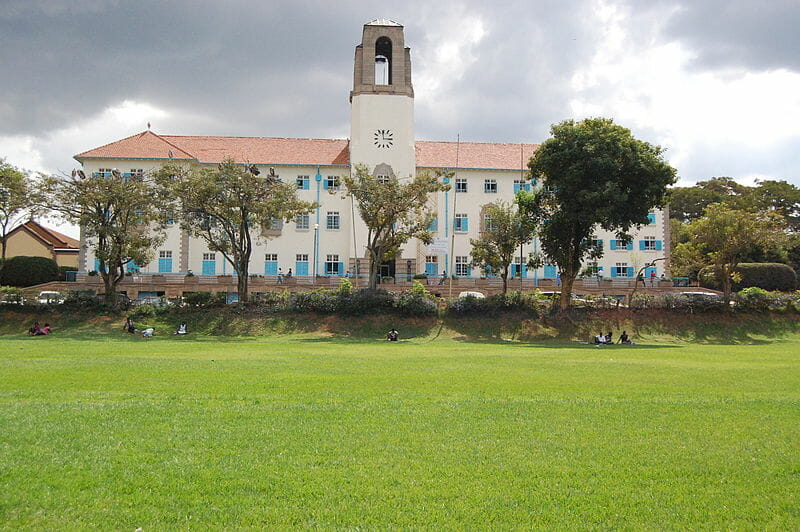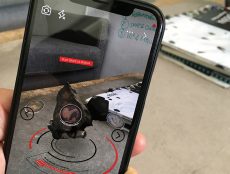
Editor’s Picks
Interviews
Makerere University to Host Conference on eLearning and Sustainable Development
By Cait Etherington
April 04, 2018
Africa currently has one of the fastest growing demands for postsecondary education in the world. However, with many African nations still struggling to meet other basic needs, including those of K-12 education, scaling up postsecondary education continues to pose unique challenges. This is one reason why eLearning has quickly gained ground across the continent.
In July, African educational leaders will meet at Uganda’s Makerere University’s 1st International Conference on Open Distance and eLearning. The conference will provide an unprecedented opportunity for educators, instructional designers, and anyone else with a stake in eLearning to explore how open distance and eLearning technologies can be used to promote sustainable development.
eLearning Inside News recently talked to Godfrey Mayende of Makerere University about eLearning in Uganda and throughout Africa and the university’s upcoming conference.
The Growing Demand for Online Education in Africa
Cait Etherington: There is currently a huge demand for postsecondary education in Africa. How is eLearning helping to respond to this demand?
Godfrey Mayende: Indeed, it is true, there is a huge demand for postsecondary education in Africa and the current higher education institutions lack the prerequisite infrastructure to respond. Open distance and eLearning (ODeL) are promising in bridging the gap. They can help learners learn while away from the university, which can avoid strain on the existing infrastructure. There is also a promising increase in the access and usage of mobile phones. Careful contextualization of these tools for teaching and learning can help in solving some of the region’s education challenges. Online learning also caters to working adults who want to return to their studies. The available options for returning adults in Uganda are limited, but eLearning platforms give them a chance to further their education, so it’s also a model that supports lifelong learning initiatives.
CE: What unique challenges do African universities face when launching open distance and eLearning programs?
GM: There are many challenges, including lack of knowledge about open distance and eLearning from top management. This can frustrate the champions for launching these programs. Internet connectivity is still a problem too, mostly in places outside capital cities. Lack of technical and student support mechanisms and lack of skills in online facilitation are both challenges because traditional facilitation is not the same as online facilitation. Online facilitation requires new skills for its effectiveness. Therefore, we need to train facilitators in online [learning] before we embark on launching a program. Another issue is a lack of continuous staff training and development and ICT integration into teaching and learning. There is always misunderstanding of this and many universities just use the learning environments as a depository for access to information. Yet learning should be authentic and interactive. Universities need a better understanding of this. Finally, lack of funding is a perennial problem at African universities, yet these programs require a heavy investment before they can take off.
eLearning at Makerere University
CE: Does Makerere University have an open distance or eLearning program and if so, when did it launch, what does it offer, and how many students does it serve?
GM: Makerere University commenced offering distance learning programs in 1991. This was in response to the restructuring program that had been recommended by the IMF where persons with limited qualifications were being displaced from their jobs. Makerere University had to respond by putting in place distance learning programs that could permit people to study as they worked. In 1991, Makerere University started with Bachelor of Commerce and Bachelor of Education degree programs. At the time, 256 students registered on these programs. In 2001, the Bachelor of Science program was enrolled onto the distance learning menu. In 2003, the Commonwealth Youth in Development Diploma Programme (CYP) joined the menu. In 2012, the Bachelor of Agricultural and Rural Innovation commenced. Other programs now include the Master of Public Health Distance, Master of Epidemiology and Biostatics, and Masters of Palliative Care. As per the University’s Policy on Open, Distance and eLearning, all the ten colleges in the University are each required to have one or more programs running as open, distance, and eLearning programs. Presently, about 15% of the student population at Makerere University are distance learning students.
A number of steps have been taken by the University Council to increase the uptake of open, distance and eLearning delivered program. The University has set up the Institute of Open, Distance and eLearning to work as a one-stop support center for all other units in the University in as far as open, distance and eLearning issues are concerned. The Institute works with the rest of the university units to develop and review curricula for open, distance and eLearning delivered programs. The institute supports faculty and students in ODeL. A number of project are being executed all aimed at improving the distance learning mode of delivery. Key among these projects is the Norad funded Distance Education Leapfrogging Project aimed at increasing the integration ICTs in teaching and learning on distance learning programs. Other projects are the PEBL project aimed at using blended learning approaches to tap into the expertise of scarce faculty in the East African region. The other is the EPICA Project which is aimed at increasing the visibility of graduates’ skills using an e-portfolio.
Goals for the Upcoming Conference
CE: This will be the university’s 1st international conference on distance learning. Can you tell me about the goals of the conference? Also, what specific issues and challenges will presenters be discussing?
GM: Prior to the 1st International conference, the Institute of Open Distance and eLearning has organized national workshop in Open, Distance and eLearning, including DELP 2015, DELP 2016, and DELP 2017. While as these appeared national, we managed to attract international participants from Norway, Sweden, Ghana and Nigeria. This time round, we have internationalized the conference to make it a little bigger and attract both national and international actants in the field of online and eLearning. We also envisage more presentations and fruitful discussions to take open, distance, and eLearning debates forward.
DELC is a joint conference between Makerere University in Uganda and University of Agder in Norway. This is as a result of the joint collaboration project funded by Norad. The Conference will run under the Theme “Using Emerging Open Distance and eLearning (ODeL) Technologies to Promote Inclusive, Quality and Equitable Education” and in two sub-themes: Innovative Pedagogies for Inclusive, Quality, and Equitable Education; and Emerging ODeL Technologies for Inclusive, Quality, and Equitable Education
Three internationally renowned ICT in education professors will give keynote addresses at the conference. These include Professor Frank Reichert, who seres as Rector at the University of Agder, Professor Jessica Aguti from Makerere University and Professsor Maurice Ghislain Norber Isabwe from the University of Agder.
The beauty of this conference is that it will culminate in a published book. Authors with exceptionally good papers will be invited to convert them into book chapters.
Finally, I should add that the conference is also going to run at the same time as the e/merge Africa festival. Discussion are underway to have a session from e/merge Africa streamed at the conference and vice versa. This will give it a more international feel across eLearning experts in Africa and beyond.
CE: Who should attend this conference and how can they submit an abstract?
GM: Mainly this conference is targeting educational technology researchers and practitioners. If you are using technology for teaching and learning, then this is a great place for you to showcase your research. Distance learning, computer-supported collaborative learning and other topics are welcome. For more information, visit our conference website.









No Comments